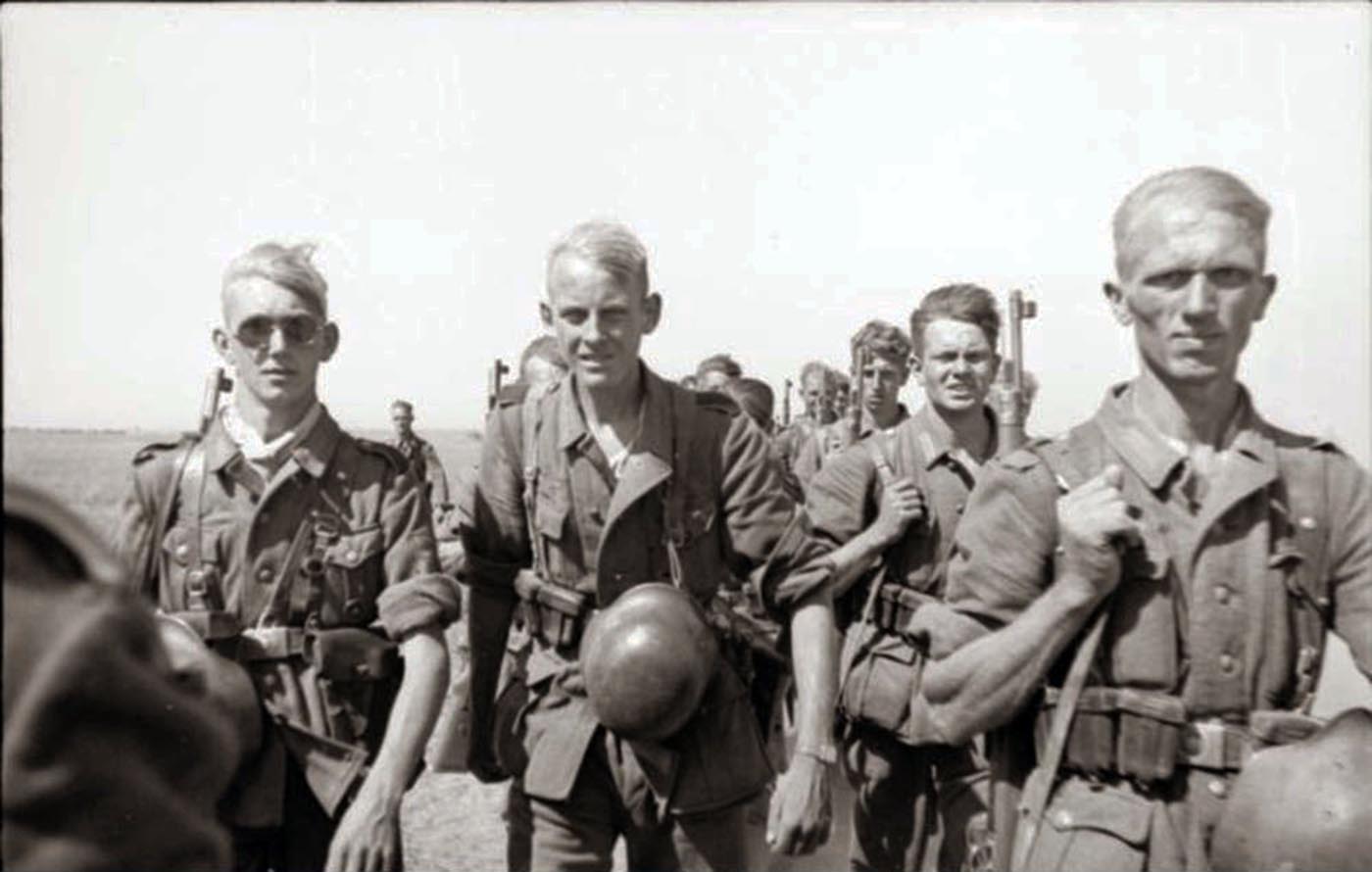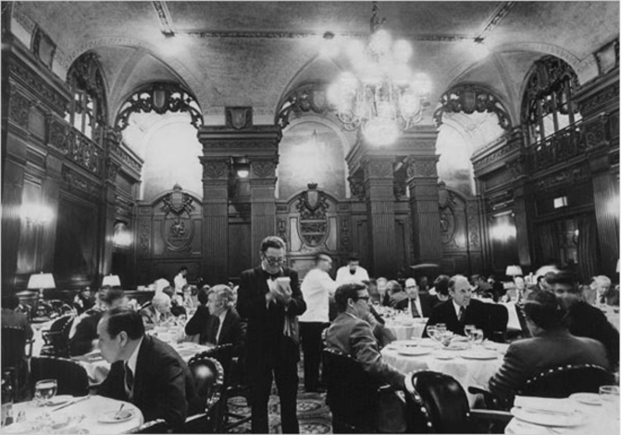When Johnny Comes Marching Home again Kids Environment Kids Health National Institute of Environmental Health Sciences
Table of Content
Allan Jones and Jane Frazee also sing a couple of wonderful love duets here. Then there's the luminous and exciting charm of the Phil Spitalny and his "Hour of Charm" All-Girl Orchestra with Evelyn and her Magic Violin. Also, The Four Step Brothers do tap dance up a storm with their athletic spins and somersaults.

Third Reich soldiers joined the cheering crowds viewing the blood-soaked scenes. Connie was the devoutly Catholic draftsman son of a semi-prestigious but down-on- his-luck, alcohol-challenged architect in Aberdeen, South Dakota. He was the older and beloved brother of my then ten-year-old mother Jane, who was known as “Bugs” to her family. Last Tuesday, November 8, was the 80th anniversary of my 23-year-old Army corporal Uncle Connie’s uncelebrated and at first officially unacknowledged death on the opening day of a massive United States-British invasion of northwest Africa code-named Operation Torch. Cotton finally snaps when he sees his Cadillac in the parade covered in flowers, and runs out to steal it back. Aided by fellow veteran Topsy, Cotton extracts his revenge on all those who ignored him, but comes to realize he has done nothing to aid Didi nor G.H.
Lyrics
A color-illustrated, undated slip of Gilmore's lyrics, printed by his own Boston publisher, actually states that "When Johnny Comes Marching Home" should be sung to the tune of "Johnny Fill Up the Bowl". The original sheet music for "Johnny Fill Up the Bowl" states that the music was arranged by J. William "Bill" Kluggs is the first in his hometown of Punxsatawney, West Virginia, to enlist in the Army Air Forces after the attack on Pearl Harbor, making his father Herman , mother Gertrude and girlfriend Marge Fettles proud. Willie tries to become a pilot but washes out, although he proves to be so proficient at aerial gunnery that, rather than being sent to Europe to fight, he is made an instructor and assigned to a base near his hometown. After two years in the same place, he is branded a coward by the townsfolk, even though he continually requests a transfer into combat. Connie expressed concern for “Bugs,” worrying about her happiness after the family was relocated to the Clake Hotel in Hastings, Nebraska while the father found work designing a new army facility.
He then has to become the vessel for getting the film back to England for British intelligence through getting drunk at a wedding, riding a torpedo boat through enemy fire, onto a motorcycle to London, and finally delivering the intelligence to command personnel. Up until this point, I was mildly entertained, but there were about two minutes where I thought this movie was going to turn into another hidden gem of a find, lost in the bulk of Ford's length body of work. Charlie has gone to war, joined the navy and fought in the Pacific, given a weeklong furlough back home. Charlie is regaling the older members of town, who all saw action in World War I, with his tales of action, and Charlie has nothing against William's experiences during the war, knowing how dangerous student pilot missions can be. However, the elders are dismissive of William and push him away, shutting him down when he tries to relate experiences that were as life threatening as Charlie's.
CounterPunch+
The Dropkick Murphys recorded their own version of the song on their 2007 album The Meanest of Times, titled "Johnny I Hardly Knew Ya", using old Irish lyrics to the song's beat. The tune of the song was used for the song “Brave Sir Robin” in the 1975 film Monty Python and the Holy Grail. A modification of the tune was used in Stanley Kubrick's 1964 film Dr. Strangelove during the Bomb Run sequence. The children's songs, "Ants Go Marching", or "Ants Go Marching One By One" and "The Animals Went in Two by Two" ("Into the Ark") re-used the tune and the refrain.

"When Johnny Comes Marching Home" is also sung to the same tune as "Johnny I Hardly Knew Ye" and is frequently thought to have been a rewriting of that song. However, "Johnny I Hardly Knew Ye" was not published until 1867, and it originally had a different melody.
Storyline
This musical hope for peace originated during the Civil War and has demonstrated lasting appeal, growing in popularity over the years. Soldiers and civilians on both sides of the conflict sang it, identifying with the feeling of joy they thought would come with the end of the fighting and the return of loved ones to their homes. It's a slightly entertaining way to give William his victory in the eyes of the townspeople who had begun to deride him for not contributing, giving him a wildly eventful three days that ends with him back in his own living room. It's not hilarious or anything, not the kind of ratcheting up of comedy that something like Billy Wilder's One, Two, Three is, but it's fine. I would have been okay with the film using the dramatic center point of the film as a turning point into making the film overall an outright laugh riot, but I never had more than a mild grin on my face. The Polish band Ludola recorded a Polish version of the song with modified lyrics in their album "Przedwiośnie".

He was a gifted musician, becoming Bandmaster for the United States Army during the Civil War and, in post-war years, the organizer of Monster Peace-Jublilees featuring orchestras of a thousand musicians and choruses of 10,000 voices. William's efforts to go into combat finally come true when he volunteers as a last second replacement belly gunner for a flying fortress destined for England, and the movie becomes something close to a slapstick comedy. William falls asleep upon the aircraft's approach into England, stymied by heavy fog that leads the crew to abandoning the plane, pointing it directly south, and leaving William aboard on accident. When he wakes up, he jettisons as well, ending up in the hands of French Resistance fighters. After proving his Americanness by answering questions about who Mickey Mantle plays for and such, he witnesses the launching of a German rocket that Yvonne has filmed.
When Money Comes Marching Home
Well, I think Ford was at a period in his career where he had really tried to do something different with The Fugitive, got slapped down hard by critics and the movie going audiences, and just retreated into crowd pleasers. When Willie Came Marching Home isn't a bad movie by any means, but it's so light, frothy, and ultimately unfocused that it's not really good either. The 2015 film Girls und Panzer der Film has an orchestra version play at the appearance of a T28 Super Heavy Tank. A version was made for the 1995 movie Die Hard with a Vengeance by Michael Kamen. A rendition by Georges Delerue was used alongside Jewish folk song Hava Nagila in the 1990 movie Joe Versus the Volcano played it at 1 hour 20 minute mark.

Quite a few variations on the song, as well as songs set to the same tune but with different lyrics, have appeared since "When Johnny Comes Marching Home" was popularized. The alleged larcenous tendencies of some Union soldiers in New Orleans were parodied in the lyrics "For Bales", to the same tune. A British version appeared in 1914, with the similar title, "When Tommy Comes Marching Home". The 1880 U.S. presidential election campaign featured a campaign song called "If the Johnnies Get into Power," which supported the Republicans James A. Garfield and Chester A. Arthur against the "Johnnies" (Democrats Winfield S. Hancock and William H. English). The melody was previously published around July 1, 1863, as the music to the Civil War drinking song "Johnny Fill Up the Bowl".
It's 1941 in Punxsutawney, West Virginia and William Kluggs is just another guy in the town, practicing with his band in the back of the local drug store because it's owned by the father of one of his friends, and he has a girl, Marge . When news reaches the small town of the attack on Pearl Harbor, William is the first in line to volunteer to enlist for the armed forces. His town is ever so proud of him, throwing him celebrations for his desire to serve his country. On top of the world, he tells Marge's younger brother Charlie that he's not old enough to join up and that he needs to let the older guys take care of the Japanese. Basic goes well, especially when his drill sergeant discovers his incredible skill as a gunner, and he's ready to be shipped off to war. The train back east from boot camp makes a stop at a familiar place, though, and William finds himself back in Punxsutawney with a twelve hour leave before they continue on.
He wrote to Jane directly, telling her to “mind your teachers,” “say your prayers every night,” and attend mass. Due to G.H.'s birth, he can not afford to support himself and his family and loses his house in Houston. Hank realizes that Cotton's marketable skills are obsolete due to the changing time, so he uses his Strickland Propane connections to get his father a job with one of his clients. The job turns out to be a greeter for a restaurant called Burton's Prime Rib, but Cotton's boss Miles Burton, Mr. Burton's nephew, is a stickler who does not appreciate any initiative on Cotton's part, nor permit him the time off to march in the Veteran's Day parade. When Cotton has been marginalized too much, Hank begins to realize that Arlen society glorifies its veterans with parades but does little to help them in everyday life, and does his part by bringing Cotton his dress blues to march in the parade.
Never mind the story which relates to the World War II period, just enjoy the variety of musical performances in When Johnny Comes Marching Home. P.S. The print I saw had the final number in washed out tones with the volume a little lower though you could still hear a little clearly even then. The first printed sheet music for the song credits the words and music to Louis Lambert, which was determined later to be a pen name for Patrick S. Gilmore. Born in Ireland, Gilmore came to America in the 1840s along with many others who fled the famine of those years.

Comments
Post a Comment